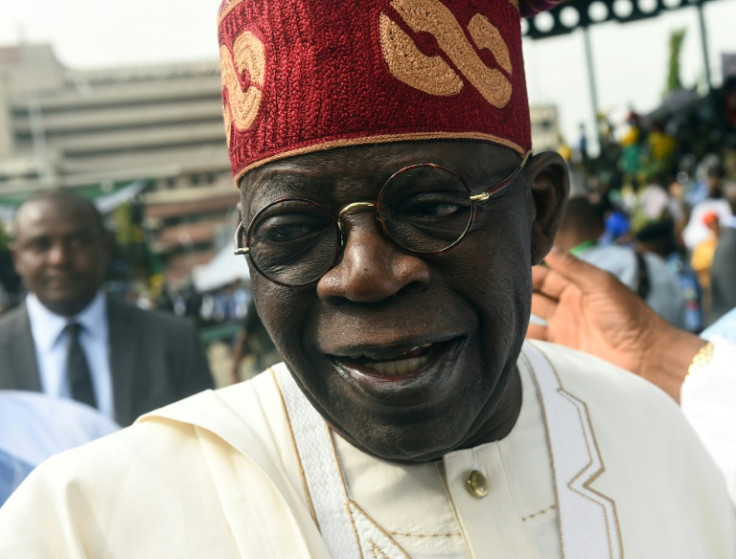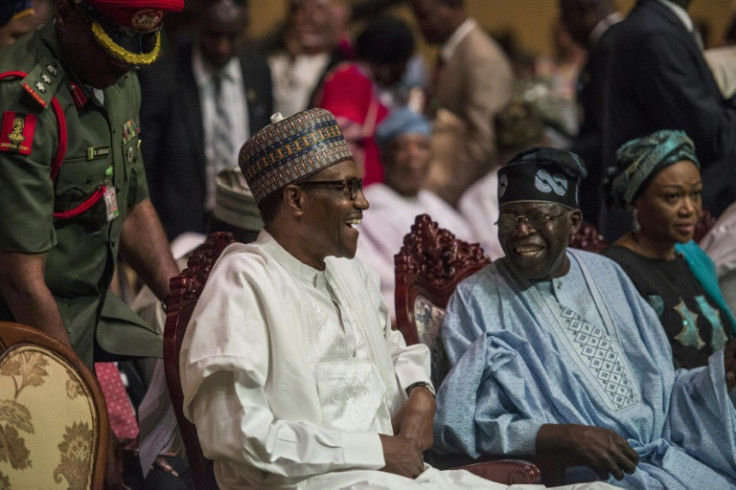Bola Tinubu: Nigeria's Political 'Godfather'

Bola Tinubu, a political "godfather" famed for his strategic deftness and clout, never hid his ambition to be president of Nigeria.
The 70-year-old has now fulfilled his "lifelong" goal by winning the presidency of Africa's most populous nation with 8.8 million votes, according to final election results.
Despite lingering questions about his health and past corruption allegations, the two-time Lagos governor will succeed President Muhammadu Buhari, a former army general he brags of helping put into power.
His ruling All Progressives Congress (APC) faces accusations of electoral fraud in Saturday's election from its two main opponents. But electoral officials and the APC dismissed those claims.
Often referred to with the chieftain's title of "Jagaban", Tinubu has spent years building his Lagos powerbase into a nationwide network of contacts from Lagos market cooperatives and transport unions to political operatives.
But in a surprise result from Saturday's polls, rival Labour Party candidate Peter Obi won in Lagos State -- Tinubu's traditional bastion of support.
"You win some, you lose some," Tinubu said of the result, urging his supporters to remain calm.
Days later the tenacious leader, who campaigned with the slogan "It's my turn", was confirmed as the winner of the presidency.
A Muslim born in Nigeria's Yoruba-speaking southwest, Tinubu trained as an accountant in the United States and worked for several US companies, including as a treasurer at oil giant ExxonMobil.
He was a political activist before becoming a senator and later governor of Lagos State from 1999 to 2007.
During his activist days, he was hounded into exile by military dictator Sani Abacha along with scores of others for campaigning for a return to democratic rule in 1999.
Described by his allies as an astute political strategist, he co-founded and financed the Alliance for Democracy, which later became the Action Congress of Nigeria, and then helped form the ruling All Progressives Congress.
He was instrumental in bringing together APC factions, pushing Buhari to victory in 2015 and ending 16 years in power for the rival Peoples Democratic Party (PDP).
The election of Buhari, the first opposition victory in the country, as well as his 2019 re-election were partly attributed to Tinubu's political influence.
In a mark of his staying power, Tinubu kept a tight grip over the governorship of Lagos from 1999, holding the post until 2007 and holding a hand in choosing his successors since leaving office.
His influence in the southwest has irked some would-be candidates who missed out on top jobs and he has been criticised as dictatorial and undemocratic in style.
"Tinubu has a very aggressive, very solid political machine," said Dapo Thomas, a political science lecturer at Lagos University.
If Tinubu's political power has often been controversial, so too have his financial dealings.
He is believed to be one of Nigeria's richest politicians and after leaving office he was accused of corruption, money laundering and operating more than a dozen foreign bank accounts. He was never charged and denies wrongdoing.
On the campaign trail PDP critics labelled him as "wobbly, wonky and narcotic-devastated," a reference to health concerns as well as a 1993 US court filing that cited a "drug-related seizure of property" from his US bank account.
The source of his wealth is unknown but he has interests in a number of business ventures, from media and aviation, to tax consultancy, hotels and real estate holdings.
One critic described him as "a greedy politician" who has gobbled up major sources of revenue from Lagos.
But Information Minister Lai Mohammed, who was Tinubu's former chief of staff, insisted he was among the shrewdest of political operators.
After the presidential inauguration scheduled in May, Tinubu will face difficult decisions around removing costly fuel subsidies and will be expected to address rising poverty and rampant insecurity.

© Copyright AFP 2025. All rights reserved.





















